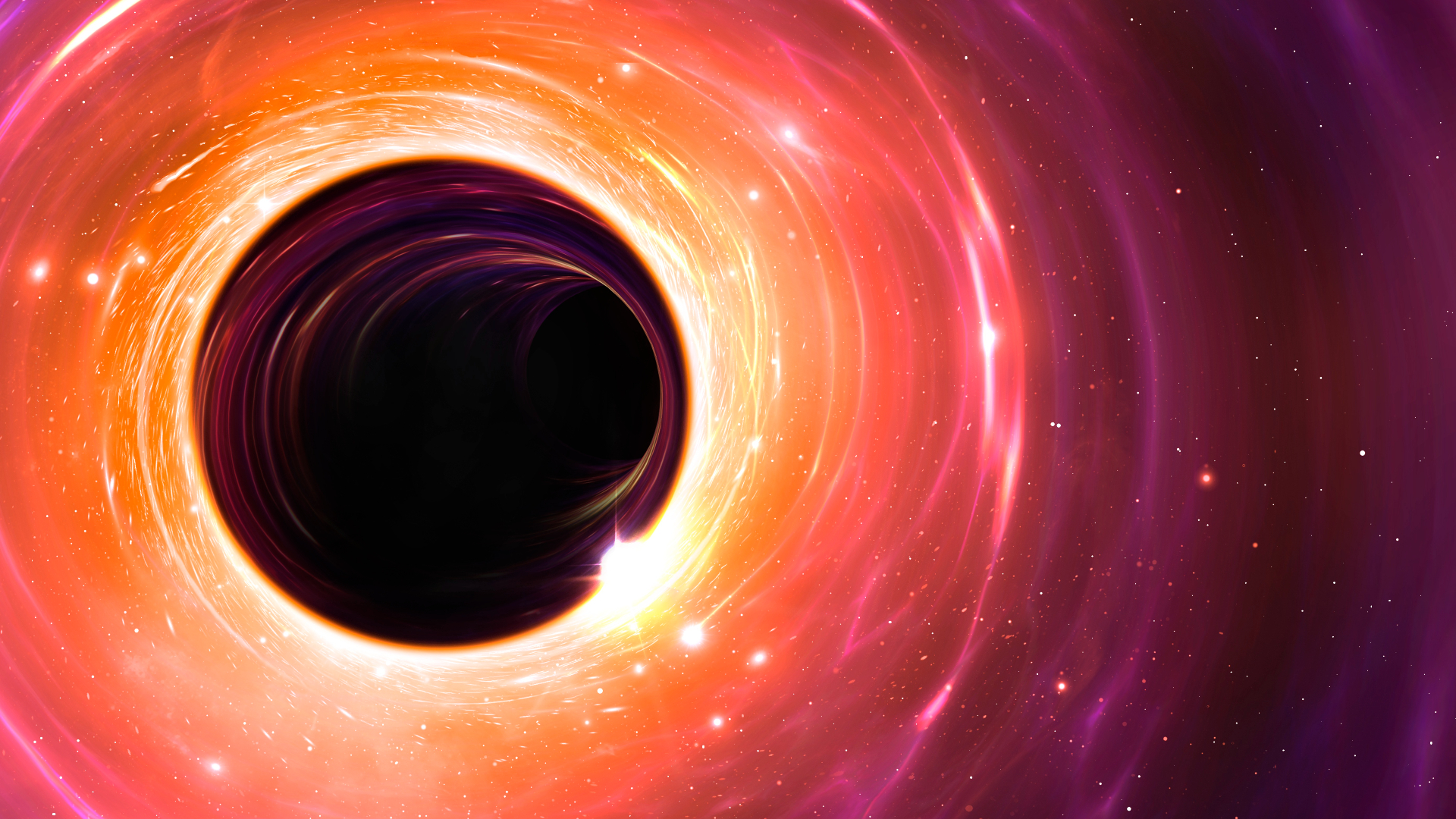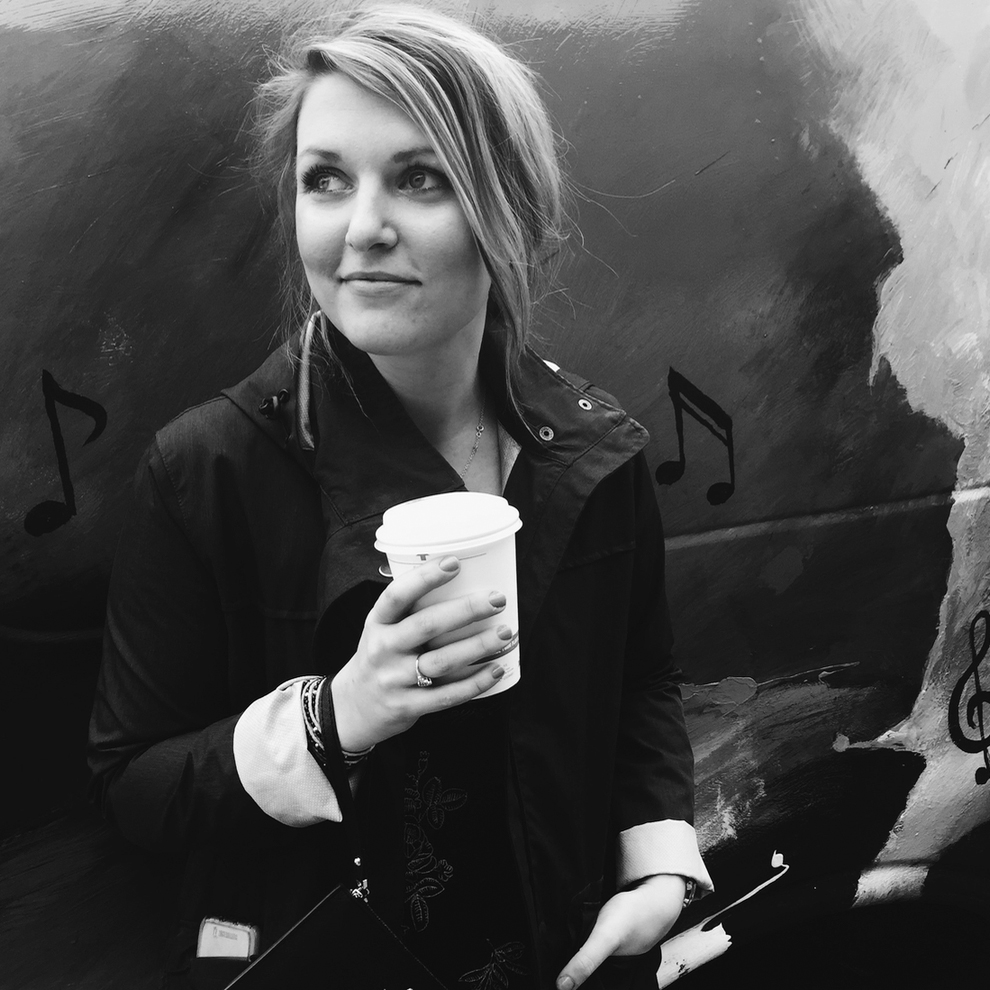
Could a black hole devour the universe?
Black holes can swallow stars, planets and even merge with other black holes, but could a massive one swallow the entire universe?

Black holes are infamous for their immense gravity — they can swallow stars, planets and even other black holes.
But could a black hole consume the entire universe, piece by piece?
In short, no. There's no way that a black hole could eat the universe, or even an entire galaxy, according to NASA. Here's why.
Black holes are former massive stars that have collapsed back in on themselves to become incomprehensibly dense — so much so that even light can't escape them. The idea that a black hole could swallow the universe is based on the misconception that they work like vacuums, sucking space toward themselves, said Gaurav Khanna, a black hole physicist at the University of Rhode Island. But that's not the case.
"They only swallow things that are extremely close," Khanna said. In fact, black holes can only devour objects that venture into their event horizon — a black hole's point of no return, beyond which there is no escape.
Related: How big is the universe?
For example, the event horizon for a black hole the mass of the sun would extend only 2 miles (3 kilometers). For a black hole with the mass of Earth, the event horizon would be only a few inches, like "the size of your thumb," Khanna said.
Sign up for the Live Science daily newsletter now
Get the world’s most fascinating discoveries delivered straight to your inbox.
A black hole's gravity still impacts surrounding stars and planets — it may even cause them to orbit, like the black hole at the center of the Milky Way does — but it doesn't swallow them.
York University astronomy professor Paul Delaney gave the following example in an article for the university's website: "If our own sun was to (miraculously) transform into a black hole of the same mass, our planet would not discern any change in the gravitational force acting on it and continue in the same orbit," he said. "It would get very dark of course and very cold, but the black hole's gravity at our distance from it would not be a concern."
It's also important to note that black holes are quite small, Alexei Filippenko, a black hole expert at the University of California, Berkeley, told Live Science. For a black hole to have a reasonably high chance of swallowing a star, the star in question must be aimed almost directly at the black hole, he said. Over time, this kind of cosmic bullseye can happen. But for the sun to be swallowed up by the black hole at the center of the Milky Way, for example, it would take a "truly ginormous amount of time" for the star's orbit to line up just right with the black hole, he said.
Even the largest-known black hole in the universe — a cosmic titan named TON 618, weighing an estimated 40 billion solar masses — appears to be near the theoretical limit of how big black holes can get. This limit comes from the fact that, as large black holes gorge themselves on matter, they also release tons of radiation. The radiation heats up and ionizes the surrounding matter, making it more difficult for the gas and dust to cool down and fall into the black hole and ultimately slowing the rate at which the black hole can feed. This self-regulation prevents black holes from devouring entire galaxies, let alone the entire universe.
Then there is the universe's accelerating expansion to consider. As objects in space become farther apart, they're less likely to collide with and be captured by a black hole, Khanna said. If one black hole were to devour the entire universe, it would require a monumental shift in the direction the cosmos appears to be moving.
So you can rest easy — at least where giant, universe-swallowing black holes are concerned. They're "nothing for us to worry about," Khanna said. Unless, of course, the universe is already inside a black hole.

Donavyn Coffey is a Kentucky-based health and environment journalist reporting on healthcare, food systems and anything you can CRISPR. Her work has appeared in Scientific American, Wired UK, Popular Science and Youth Today, among others. Donavyn was a Fulbright Fellow to Denmark where she studied molecular nutrition and food policy. She holds a bachelor's degree in biotechnology from the University of Kentucky and master's degrees in food technology from Aarhus University and journalism from New York University.









